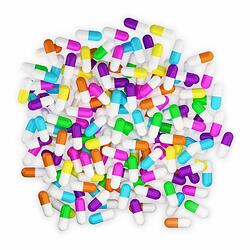
Rebound headaches are part of the migraine cycle. Since these headaches are related to overuse of over-the-counter (OTC) analgesics, they are more likely to occur to patients who suffer from chronic migraines. They are called rebound headaches because they occur right after the tail end of a period of heavy OTC medication consumption, and they can add a new dimension to the migraine experience by becoming part of a new cycle of cephalalgia.
How to Avoid Rebound Headaches
Unlike some migraine conditions, rebound headaches can be completely avoided, and the first step in prevention is understanding their causal mechanism.Some people believe that rebound headaches are due to the body becoming developing a strong tolerance to OTC medications such as aspirin, acetaminophen, ibuprofen, etc. Part of this is true, but it unfortunately prompts many patients to increase their dosage. At this point, the condition is more closely related to medication withdrawal than tolerance.
OTC analgesic withdrawal might be due to caffeine, which is an ingredient found in popular migraine remedies such as Excedrin Migraine. Caffeine is often effective in diminishing nausea, but it is also associated with tolerance and withdrawal symptoms. At some point, excessive caffeine will cause just about anyone to experience a headache.
Rebound headaches become part of a cycle of discomfort when patients start chasing their pain with even more OTC medications. This can be terrible for chronic migraine patients since they have another headache condition to worry about. The best way to avoid rebound headaches is to follow doctor's advice when it comes to taking OTC medications. If the pain from a migraine episode does not subside after one OTC dosage, it is better to tell the doctor about it. A prescription remedy can be ordered for immediate relief and new pain relief options can be considered.
Treating Rebound Headaches
The abrupt discontinuation of OTC analgesics will surely stop a rebound headache, but this drastic measure may not be the best option for migraine patients. In many cases, a gradual reduction of OTC medications under the supervision of a physician might be a more sensible option. In cases when migraine patients have developed rebound headaches as a result of taking prescription medications that have codeine, a detoxification process might be recommended.
Migraine patients should refrain from taking OTC analgesics each time they sense an aura; they should wait until they are certain that a migraine episode is imminent. Since OTC medications are part of an abortive approach to migraine treatments, specialists are looking at preventive drug therapy and even Botox injections as more sensible options.
*Image courtesy of freedigitalphotos.net

